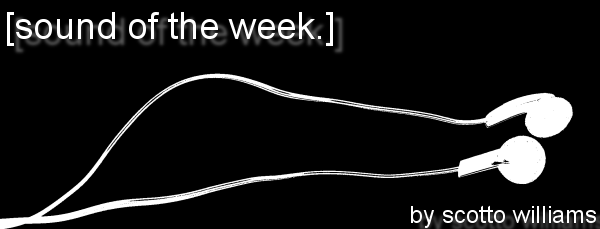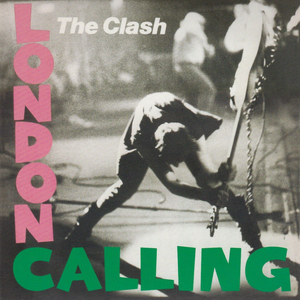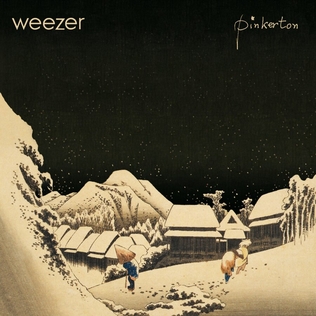It's guttural, it's visceral, it's direct. One guitar gallops along in a low growl, the other flies off like sparks. If you dissect it, it flies in the face of by-rote rock construction we now take as fact. The album completely fucks around with the idea of verses and choruses and solos as they've become codified, instead having a ragged, brisk, in-the-moment feeling. And yet it never sounds jammy. For one brief moment at the apex of their 70's career, before the drugs swallowed them whole, these five guys were visionaries. And they walked out of the studio with an album I find impossible to deny.
"Back in the Saddle" is the no-bullshit "looking for a fuck" song that, if you were about high art, you might look down your nose on, but their ability to so wholly commit themselves to the nasty urges that lie within us is precisely where the brilliance of the album lies. Despite what cliche holds about this band, this is not an uncomplicated, shallow piece of work. I said earlier that just about every album on this list could in some way be construed as a concept album of some kind. The concept here is how deep one can dive into one's vices before they destroy you completely. As early as the second track, Tyler yearns for "home sweet home" in South Tallahassee.
"Last Child" has a false beginning, a rare device that pulls you into the song, makes you feel you've slipped into a idyllic fantasy before being smacked out of it, pulled back to the gray, urban life by that clockwork funk riff that so perfectly replicates the world of traffic and pedestrians and steel and glass. The sinking guitar riff in the "home sweet home" refrain is so sentimental, but lets you down knowing the past is gone. The proto-rap vocal delivery proves the band's rhythmic strength that would help haul them out of oblivion a decade later. The song fades out in sirens and a whirring slowdown of the disc that leads into the manic "Rats in the Cellar." Something about this song says to me "You're fucked now." It's so turbocharged and claustrophobic, the city is starting to win. Weird harmonies appear abruptly then fade away like ghosts of psychedelia. There's almost too much going on in this one song to comprehend. It ends with a dangerously fleet-fingered guitar solo that seems both meticulously composed and dangerously unstable, adding to the nuclear meltdown feel of the album. After a minute and a half of pure instrumental mayhem, the song grinds to a halt in drums.
Side 1 ends with "Combination," a Joe Perry song that feels like walking around at daybreak trying to find a friendly face (or at the very least, someone to buy drugs off of.) The guitar riff speaks to me, because it's so circular, up and down, indicating how inescapable this predicament is. Perry and Tyler do dual vocals here, making it sound utterly inhuman. The voices themselves are identifiable, yet in some kind of weird blended uncanny valley where it just doesn't sound right. And that wrongness is sublime. It doesn't help that the lyrics are so obscure and ominous. And that riff just won't stop churning.
Side two begins with a pair of crucial songs to the albums "personal disaster" aesthetic. The opening guitar sweep of "Sick as a Dog" is grand and orchestral, like a beautiful mist, before sharpening into focus with an unsympathetic Greek chorus riff. This song wears its heart on its sleeve, with opening lyrics "Pleeeeeease / I've just got to talk to you." The lyrics here, as throughout the album do a great job making a statement without grinding it into dust. Unsubtle but not obvious. Not something just anyone would have written, not a KISS or Journey or Foreigner song. Here is a way of throwing yourself on the floor and begging for forgiveness, for release, for redemption, but being denied. "You'll be sorry / 'Cause you really ain't that young." Like many of the songs on this album, it ends with about a minute-long guitar workout that leaves you to contemplate what's been brought to your feet. That there might not be much time left is indicated by the fact that this hymn to redemption bleeds into one of the first great sound-pictures of Armageddon ever committed to tape. On "Nobody's Fault," Tyler steps up his vocal performance to a previously unheard level of histrionics. The song is too big for words, looming over the listener (and, sounding more than a bit like Black Sabbath but with heart, informing much heavy metal in the decades to come.) "Saw-rry / You're so saw-rry / Don't be sawr-r-r--ry!" those inhuman harmonies return, "Man has known it / now he's blown it / Upside-down and hell's the only stop / We did an awful job / And now we're just a little too late." The song takes on the fire and brimstone of a sermon, but never names names. This track forgoes all the bluesy swagger, the inflated ego and self-importance and comes apart at the seams.
But if nothing else, there's still rock, and the album forges ahead with "Get the Lead Out," a fairly good rocker that, in the context of this album, seems merely adequate. It's followed by the utter pure rockingdom of "Lick and a Promise," a song that is even dirtier than it at first seems. It seems like a celebration of the rock star lifestyle, but like a good work of modernism, it hides inner truths about the hollow pleasures down that path. For all its glamorous riffs, and clever lyrical turns, the hook says it all just by going "Na, na, na, na, na!" It's an invocation of the loneliness and self-destruction at the heart of excess and stardom. It shines and lures, but it's hollow. I think that's why those syllables echo so distantly in my head, because I happen to be aware, with the gift of hindsight, that success did utterly swallow them whole for about a decade following the release of this record. First they took the world, and then the world took them. It gets better knowing the story that unfolded, but taken for itself it's still brilliant. One more cacophonous, pitiless, incredible solo later, we're on our way out the door.
The album is capped off by "Home Tonight," which comes from a time when the downtempo tracks on Aerosmith's albums weren't meant merely to be hits on disaster movie soundtracks, but were actually a novel touch. This impressively spare yet altogether grandiose statement of devotion features a staggeringly excellent instrumentation and an impassioned vocal performance. The thing about Steven Tyler, especially in the 70's, is that his voice carries that undefinable quality of authenticity that's usually associated with old type blues singers, and it's clear how seriously he puts his all into these recordings, the man practically seems to be choking with sentiment rather than just turning out a reading that seems pretty. You don't get that anymore. It seems impossible. (The last one I can ever remember would be Cobain.) It's not rough n' ready like Bon Scott, and it's not operatic like Mercury and it's not whimsical like Bowie, but he hits places in the heart, head and balls few other vocalists could or would.
At only 9 tracks and 35 minutes, Rocks is a brief yet thorough tour of the darkness that exists inside all of our desires, that too much of a good thing is definitely destructive. What it might sound like to be too far gone. I first heard this album when I was a preteen, beset by hormones, the best time to listen to loud music, because everything you're feeling seems so much bigger. The allure of hard rock is that, while maintaining catchy riffs and identifiable rhythm, it breaks its own constraints to make itself seem louder than it could possibly be, to magnify every bit of anger and hatred and feat and regret, as well as joy and lust and anticipation and seduction. It was a fine line to walk before becoming caricatures (as they literally did on the cover of their next album,) but here the right balance is struck, oddly enough by getting off balance to the right degree. Like I said, some songs are built contrary to what we expect from formal conventions, but we never notice, and then they bear the burdens of impossibly erratic solos totally enveloping them. There is much panic in this world, inside and out, and this album objectifies it excellently.
Everyone should be so lucky as to have an album in their lives that does for them what Rocks does for me. I didn't put it at the top of this list because I think, objectively, it's the best, or because I think everyone should love it the way I do. I just hope you love something the way I love this. Some years ago I wound up at this party talking to some dude about music. Eager to get into a music cred pissing contest, he asked what my favourite band was, probably expecting some tried-and-true answer like the Velvet Underground or the Pixies, or an acceptable recent contenders like Arcade Fire or Radiohead. But no, for the love of music, I couldn't forsake this band, and when I said Aerosmith, he scoffed. And isn't that just a little sad? Because, the stereotypes they later embraced aside, you'd have to be utterly numb inside not to be rocked by the content of this album, not to feel the highs and lows invoked by this madness. But even if it's not your thing, I just think it's sad not to understand how it could be somebody's.
But that's what a favourite is. It's something that means something to somebody, something that forms the bedrock for your tastes and says something about who you are as a person. In a kinder world I wouldn't have to defend that, but here we are.
That said, I do happen to hold this album in high esteem because not only is it personally meaningful, but also a significant moment in hard rock. I'm not a man of extreme tastes, I like music that manages to go utterly insane without sacrificing rhythm and melody. As deep and dark as Rocks is, it is never without that loose, easy swagger that tells you why a walk in the darkness is so inviting to begin with. It isn't that this album speaks to me because I know where it's coming from. It pulls me out of my life and blows everything I've ever felt or known up to an impossible proportion. This is a crushing testament to the power of guitar music.
Buy this album from iTunes now!




